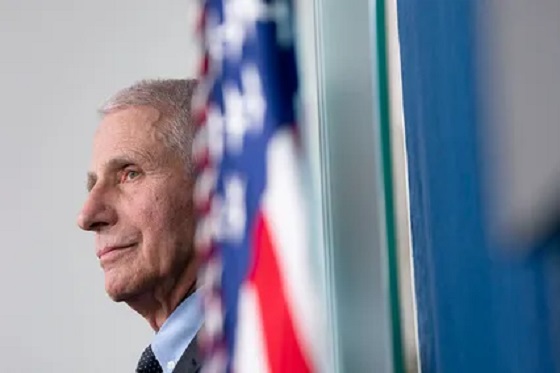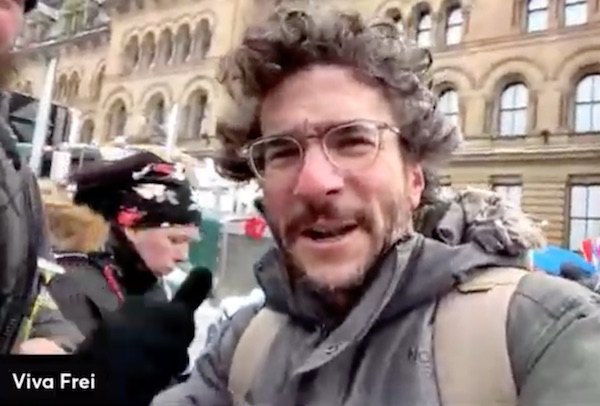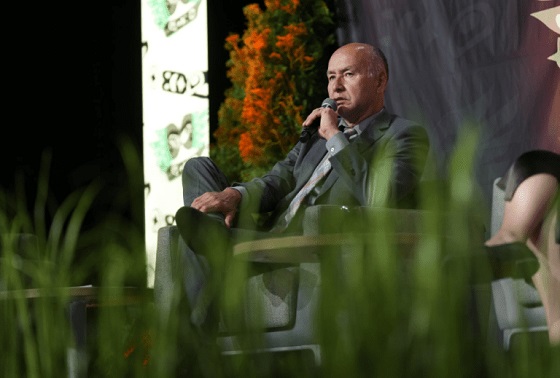COVID-19
Agencies ordered to delete worker COVID vaccine records

Quick Hit:
The Trump administration on Friday ordered federal agencies to erase employee COVID-19 vaccination records, mandate noncompliance notes, and exemption requests — part of what officials call a broader rollback of Biden’s “harmful pandemic-era policies.”
Key Details:
- OPM Director Scott Kupor said the decision ensures federal employees are no longer punished for “making a personal medical decision,” adding that “the excesses of that era” should not have lingering effects.
- The order, effective immediately, bars agencies from considering vaccine history in hiring, promotions, discipline, or termination decisions and requires agencies to erase such records from all personnel files within 90 days, unless an employee chooses to keep them.
- Biden’s September 2021 federal worker vaccine mandate faced a legal rollercoaster, with courts issuing and reversing injunctions before the policy was finally struck down and rescinded in May 2023.
Diving Deeper:
The Trump administration on Friday moved to erase one of the most contentious legacies of the Biden-era COVID-19 policies, ordering all federal departments and agencies to delete employee records tied to vaccination status or related mandate disputes.
In a memo sent to agency leaders, the Office of Personnel Management announced the policy shift, framing it as part of the administration’s effort to undo measures that sidelined or penalized federal workers for declining the COVID vaccine.
“Things got out of hand during the pandemic, and federal workers were fired, punished, or sidelined for simply making a personal medical decision,” OPM Director Scott Kupor said in a statement. “Thanks to President Trump’s leadership, we’re making sure the excesses of that era do not have lingering effects on federal workers.”
The directive, effective immediately, prohibits agencies from factoring an employee’s COVID-19 vaccination history into any employment decision. Within 90 days, all such records — whether in physical or electronic form — must be purged from personnel files unless the employee requests to keep them on record. Agencies must certify their compliance with Kupor’s order by September 8.
Biden’s original vaccine mandate, issued in September 2021, required all federal employees to be vaccinated as a condition of employment. Nearly 98% of covered employees received the shots before a federal judge blocked the mandate in January 2022. That injunction was briefly overturned by a three-judge panel in April 2022, but a year later the full Fifth Circuit struck down the requirement. Biden rescinded the policy in May 2023, months after declaring on “60 Minutes” that the pandemic “is over.”
Friday’s order marks a full policy reversal, ensuring vaccine-related records no longer follow federal workers through their careers — a clear signal from the Trump White House that the Biden-era mandate will have no place going forward.
COVID-19
Tamara Lich says she has no ‘remorse,’ no reason to apologize for leading Freedom Convoy

From LifeSiteNews
‘To whom shall I apologize? Thousands of Canadians who stopped planning to take their own lives or were able to return to their jobs, kiss dying loved ones or have families over for Thanksgiving?’
Freedom Convoy leader Tamara Lich, reflecting on her recent house arrest verdict, said she has no “remorse” and will not “apologize” for leading a movement that demanded an end to all COVID mandates.
Lich revealed in an X post this week that in conversations with her lawyer, Lawrence Greenspon, over the past few months, she told him, “I would not, and could not, express remorse as it would be dishonest and disingenuous.”
“To whom shall I apologize? The thousands of Canadians who stopped planning to take their own lives when the convoy started? To the thousands of Canadians who were able to return to their jobs? Or should I apologize to all the Canadians who can kiss their dying loved ones or have their families over for Thanksgiving?” she observed.
On October 7, Ontario Court Justice Heather Perkins-McVey sentenced Lich and Chris Barber to 18 months’ house arrest after being convicted earlier in the year convicted of “mischief.”
As reported by LifeSiteNews, the Canadian government was hoping to put Lich in jail for no less than seven years and Barber for eight years for their roles in the 2022 protests against COVID mandates.
Interestingly, Perkins-McVey said about Lich and Barber during the sentencing, “They came with the noblest of intent and did not advocate for violence.”
In Lich’s X post, she noted that while she has “no doubt” some citizens of Ottawa “felt afraid, threatened and terrorized” by the protests, she blamed the Liberal government under former Prime Minister Justin Trudeau.
“How could they not when their mayor and politicians were labeling us as an angry mob coming to overthrow the government before we even left Alberta?” she wrote.
“Do I feel bad for these people? Of course I do. I wish no ill will upon anyone. However, it was their very own leaders who lied to them and misled them. There are citizens in Ottawa genuinely afraid of working-class Canadians, who had never met a trucker or an oil patch worker.”
Lich noted how she told her lawyer that she would “serve 100 years in prison before I will ever apologize.”
Specifically, Barber was handed an 18-month conditional sentence, with a concurrent three-month sentence for counseling disobedience of a court order that can be served in the community.
Lich was given 18 months less time already spent in custody, amounting to 15 1/2 months.
Both Lich and Barber must remain in their house for the first 12 months except for medical emergencies and certain appointments. They are allowed to work and can leave their house for certain permitted activities for up to five hours once a week. They were also given a curfew and 100 hours of community service.
As reported by LifeSiteNews, Barber thanked Conservative MP Leslyn Lewis for “speaking up” in support of him and Canadians’ freedom rights after he and Lich were sentenced.
LifeSiteNews reported that Conservative Party leader Pierre Poilievre offered his thoughts on the sentencing, wishing them a “peaceful” life while stopping short of blasting the sentence as his fellow MPs did.
In early 2022, the Freedom Convoy saw thousands of Canadians from coast to coast come to Ottawa to demand an end to COVID mandates in all forms. Despite the peaceful nature of the protest, Trudeau’s government enacted the never-before-used Emergencies Act (EA) on February 14, 2022.
COVID-19
Canadian commentators call Freedom Convoy leaders’ sentences ‘onerous,’ ‘too stiff’

From LifeSiteNews
“The understandable reaction is going to be ‘Well, the crown was asking for much more, so this is actually a victory. Bullsh*t. Having to tolerate injustice and rationalize it as being acceptable because it’s less of an injustice than what could’ve been is bullsh*t”
Canadian political pundits and right-of-center media were quick to blast what they called “onerous” house arrest conditions placed on Freedom Convoy leaders Tamara Lich and Chris Barber, who were sentenced yesterday by an Ontario judge after earlier being found guilty of mischief.
Rebel News head Ezra Levant, who has been covering the trial extensively, gave his assessment of the verdict, saying there was “good” and “bad” news.
“Good news: no additional jail time for Tamara Lich or Chris Barber,” he wrote on X.
“Bad news: onerous house arrest provisions. The real punishment was the longest mischief trial in Canadian history. Total political vendetta by Doug Ford’s prosecutors.”
On October 7, Ontario Court Justice Heather Perkins-McVey sentenced Lich and Chris Barber to 18 months’ house arrest after being convicted earlier in the year convicted of “mischief.”
As reported by LifeSiteNews, the Canadian government was hoping to put Lich in jail for no less than seven years and Barber for eight years for their roles in the 2022 protests against COVID mandates.
Interestingly, Perkins-McVey said during Tuesday’s sentencing, “They came with the noblest of intent and did not advocate for violence,” Perkins-McVey said of Lich and Barber.
Political commentator Rupa Subramanya was pleased with the overall outcome.
“So no jail time for @LichTamara and @ChrisBarber1975. House arrest, curfew, and time in the community for both. Good outcome. Finally, they can put this chapter behind them. And everyone can move on. It’s been a long 3 years!”
Brian Lilley, a political commentator for the Toronto Sun, called the overall sentence “too stiff.”
“Lich & Barber both given 18-month conditional sentences with house arrest, with carve-outs, for their mischief convictions related to the Freedom Convoy. Too stiff in my view based on the facts, but better than what other judges would have given,” he wrote on x.
Well-known Canadian celebrity and commentator Brett Wilson observed while the sentence could have been worse, Lich and Barber should have had “nothing” as punishment, saying instead that former Prime Minister Justin Trudeau should be the one penalized.
“Delighted with the overall Freedom Convoy sentence being JUST house arrest. Not jail,” he wrote on X.
“Trudeau should be sharing a matching penalty. And I wish the sentence were nothing. But here we are. The Crown Sentence request was absolute bullsh*t.”
Canadians should not accept house arrest verdict as ‘victory,’ warns commentator
Well-known online commentator Viva Frei was not as gracious with Lich and Barber’s verdict, saying “having to tolerate injustice and rationalize it as being acceptable” is like the “boiling frog analogy.”
“The understandable reaction is going to be ‘Well, the crown was asking for much more, so this is actually a victory. Bullsh*t. Having to tolerate injustice and rationalize it as being acceptable because it’s less of an injustice than what could’ve been is bullshit,” he wrote on X.
“It’s the boiling frog analogy. You tolerate injustice, you rationalize injustice, you will get more injustice.”
Frei doubled down, calling the sentence “absolute judicial horsesh**,” noting how saying,
“it could’ve been worse” will pretty “much always be true.”
“Call it out for what it is. This sentence is an absolute outrageous injustice. The sentence should have been time served, with an apology from the judge,” he wrote.
“The entire system in Canada is fu**ed beyond belief. Possibly fu**ed beyond repair.”
Specifically, Barber was handed an 18-month conditional sentence, with a concurrent three-month sentence for counseling disobedience of a court order, that can be served in the community.
Lich was given 18 months less time, taking into account the time already spent in custody, which amounts to 15 1/2 months.
Both Lich and Barber must remain in their house for the first 12 months except for medical emergencies and certain appointments. They are allowed to work and can leave their house for certain permitted activities for up to five hours once a week. They were also given a curfew and 100 hours of community service.
In early 2022, the Freedom Convoy saw thousands of Canadians from coast to coast come to Ottawa to demand an end to COVID mandates in all forms. Despite the peaceful nature of the protest, Trudeau’s government enacted the never-before-used Emergencies Act (EA) on February 14, 2022.
-

 National11 hours ago
National11 hours agoCanada’s birth rate plummets to an all-time low
-

 Crime10 hours ago
Crime10 hours agoPierre Poilievre says Christians may be ‘number one’ target of hate violence in Canada
-

 Alberta9 hours ago
Alberta9 hours agoJason Kenney’s Separatist Panic Misses the Point
-

 Automotive12 hours ago
Automotive12 hours agoBig Auto Wants Your Data. Trump and Congress Aren’t Having It.
-

 Aristotle Foundation2 days ago
Aristotle Foundation2 days agoEfforts to halt Harry Potter event expose the absurdity of trans activism
-

 Bruce Dowbiggin2 days ago
Bruce Dowbiggin2 days agoCanada’s Humility Gene: Connor Skates But Truckers Get Buried
-

 Energy2 days ago
Energy2 days ago“It is intellectually dishonest not to acknowledge the … erosion of trust among global customers in Canada’s ability to deliver another oil pipeline.”
-

 Energy2 days ago
Energy2 days agoIn the halls of Parliament, Ellis Ross may be the most high-profile advocate of Indigenous-led development in Canada.



